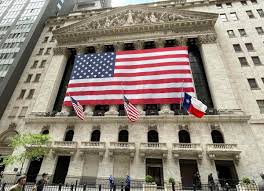The start of September saw US stocks taking a hit, setting a tone of caution as investors brace themselves for what is known as the worst trading month historically. The decline was driven by expectations surrounding a key monthly jobs update that will greatly influence the outlook for interest-rate cuts. The major indexes saw losses, with the Dow Jones Industrial Average falling by 0.8%, the S&P 500 dropping over 1%, and the Nasdaq Composite tumbling 1.3%.
The increase in Treasury yields added to the market jitters, with the 30-year yield reaching 4.96% and eyeing the significant 5% level for the first time since July. In the tech sector, Alphabet cGOOGL, GOOGc and Amazon cAMZNc led the declines among the "Magnificent Seven" Big Tech stocks, both plummeting over 2%.
The week began amid legal uncertainty tied to President Trump's tariffs and concerns over Federal Reserve independence, setting the stage for a potentially tumultuous September. Gold prices surged past $3,500 an ounce, fueled by expectations of a Fed interest rate reduction following hints from Chair Jerome Powell.
Market sentiment is largely shaped by rate-cut bets ahead of the upcoming pivotal jobs report for August, especially after disappointing inflation data impacted stocks in the previous week. The data releases this week, including US manufacturing updates, will shed light on the overall economic health, potentially influencing the case for deeper easing.
Investors are also closely monitoring developments in Washington that could challenge the Fed's autonomy, such as the ongoing legal battle over Fed Governor Lisa Cook's position. Meanwhile, a federal appeals court dealt a significant blow to Trump's trade agenda by ruling much of his tariffs as unconstitutional.
Concerns around tariff uncertainty, Federal Reserve autonomy, and the upcoming jobs report also impacted bonds, with bond yields rising. In Europe, long-dated bond yields in major countries like France, Germany, and the Netherlands hit multi-year highs amid fiscal worries.
The performance of CoreWeave cCRWVc caught attention as its shares dropped 7.8% on Tuesday morning. While the stock is up significantly since its IPO in March, a sharp decline since late June has put a major acquisition deal with Core Scientific cCORZc in jeopardy.
The tech sector faced notable declines on Tuesday, with Amazon and Alphabet leading the losses among the "Magnificent Seven" Big Tech stocks. AI chipmaker Nvidia also saw a dip following premarket losses. Overall, tech stocks led broader market losses, with the Nasdaq down 1.3% at the market open.
Looking beyond US markets, a significant natural gas deal between Russia and China impacted the energy industry, causing a drop in natural gas futures. The deal between Gazprom and Beijing to build the Power of Siberia 2 pipeline is poised to strengthen energy ties between the two countries.
On the corporate front, Nestlé's Swiss-listed shares dipped after the dismissal of CEO Laurent Freixe due to an undisclosed romantic relationship with a subordinate. The company announced Philipp Navratil as the new CEO. Meanwhile, Chinese electric vehicle maker Nio saw its US-listed shares rise after reducing its adjusted net loss and raising delivery projections.
PepsiCo's stock surged in premarket trading on news of activist investor Elliott Investment Management building a significant stake in the company, aiming to drive changes and boost shareholder value. On the other hand, Kraft Heinz announced a split into two companies, reflecting a strategic move after facing challenges in its core product lines.
Additionally, premarket trends highlighted the performance of key stocks like Nvidia, Amazon, Newmont, among others, as investors navigated through a mix of economic data and corporate earnings updates.
As investors navigate through a potentially volatile month, the complex interplay of economic indicators, corporate developments, and geopolitical factors will continue to shape market sentiment in the coming days.

